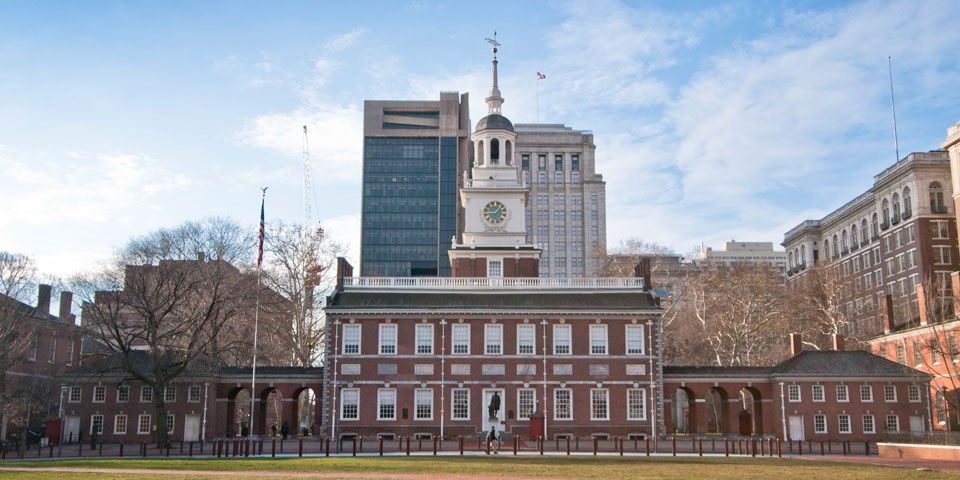
“The Great Experiment”: Virtual Reality for Higher Education
September 28, 2023, 1:30 pm - 5:00 pm EDT
Join the Omohundro Institute as we welcome Professors Warren Hofstra and Mohammad Obeid from Shenandoah University, Professor Kevin Hardwick of James Madison University, and Chief Immersive Officer at AccessVR J.J. Ruscella to discuss their virtual reality learning tool, “The Great Experiment.” The tool aims to “place participants in Independence Hall” during the Constitutional Convention of 1787.
The team began collaborating on the tool in 2020 and have since brought it to conferences and classrooms around the United States, including at the 2023 Augmented World Expo in California. Attendees will be able to try the exhibit out for themselves after a presentation at 1:30 pm.
Location
Join us in the Tidewater Room on the second floor of the W&M Sadler Center. If you are not familiar with the W&M campus, then we suggest you park in the Stadium Drive parking lot. Zable Stadium/Stadium Drive is just off of Richmond Road. Once you enter the lot, drive to the far end and you will see the Sadler Center on your right. There are Visitor parking spaces in the parking circle to the left. You will need to download the Passport App on your phone to use the spaces. (This app can be used at other parking lots in Williamsburg and cities around the US.)
Event Schedule
- 1:00-1:30 — Meet the team
- 1:30-2:30 — Presentation and Q&A
- 2:30-4:30 — Take a turn playing with the exhibit
REGISTER HERE
About the team
Warren R. Hofstra is Stewart Bell Professor of History at Shenandoah University in Winchester, Virginia. In addition to teaching in the fields of American social and cultural history and directing the Community History Project of Shenandoah University, he has published more than fifty papers and written or edited nine books including in part The Planting of New Virginia: Settlement and Landscape in the Shenandoah Valley (Johns Hopkins University Press, 2004); Shenandoah Landscapes and the Great Valley Road of Virginia (University of Virginia Press, 2010); Ulster to America: The Scots-Irish Migration Experience (University of Tennessee Press, 2011); and “Sweet Dreams”: The World of Patsy Cline (University of Illinois Press, 2013). His long-term research program engages immersive technology to present the debate at the Constitutional Convention of 1787 on electing the president in a virtual reality format that draws participants into real-time experiential and learning environments. He is also drafting a companion volume entitled “‘Perfectly Novel’: The Intellectual Origins of the Electoral College.”
Mohammad F. Obeid is an Associate Professor and the Director of the Augmented/Virtual Reality Design (BS) program at Shenandoah University, as well as the Co-Director for the Shenandoah Center for Immersive Learning (SCiL). He holds a PhD and MS in Modeling and Simulation Engineering from Old Dominion University and a BS in Industrial Engineering from the German-Jordanian University. His research revolves around synthetic environments and medical-oriented simulations; encompassing extended reality (XR) platforms, interactive and predictive simulation (medical and otherwise), computer-assisted interventions, and multi-dimensional immersive environments to support training, pedagogy, and decision making.

